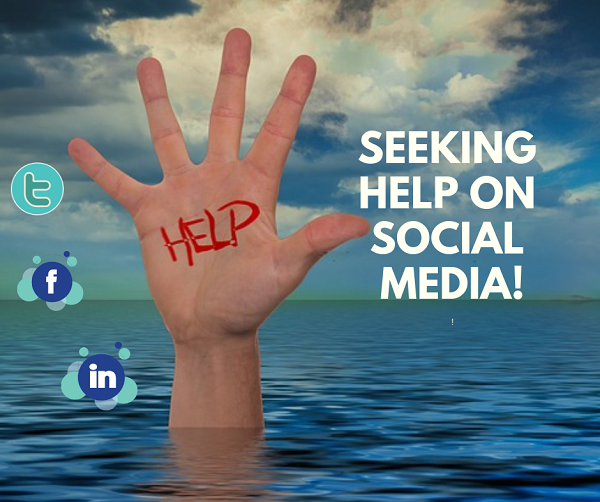Last week, we stumbled upon a post in a popular social-media networking site for professionals. This is how the post read: –
“I was sacked from work six months back and after appearing for over a hundred interviews, I still have no job. I am desperate for work, can anyone here help me get one.”
The post received numerous shares and comments. Some comments expressed sincere concern, while others offered recommendations to explore. We wonder whether any of that helped him get a job, and whether he got noticed by an employer looking to hire? We will never know that, but we resolved to speak to HR leaders and find out their reaction to such posts.
Social media has become important for employers. They cannot deny the influence of social-media platforms, such as LinkedIn, Facebook and Twitter in their professional lives. Social media is used to not just advertise job openings but also create a brand for their organisations. They develop networks for themselves and their companies.
It is on an expansion mode and will soon revolutionise the process of hiring talent. Recruiters use candidates’ social profiles to verify the information on their resumes, to gain insight into their professionalism, and to access their fit with the company culture. They may refuse a candidate on account of inappropriate photos and comments, while screening the profile of a potential employee.
This gets us back to our headline — ‘How do senior HR leaders react to sob stories on social media?’ Does it bring out concern, empathy or negativity?
“They invoke sympathy and people (out of compassion) share it over different platforms, such as WhatsApp and Facebook,” says Rajesh Rai, director-HR, ACcenture
Rajesh Rai, director-HR, Accenture says, “Essentially I have seen these posts get shared from one HR manager to another. Whether they finally get selected or not, is something I have never tracked. They invoke sympathy and people (out of compassion) share it over different platforms, such as WhatsApp and Facebook.
Sometimes, such posts also go unnoticed under a plethora of activity on a platform. By and large, if HR personnel look at it, they are very willing to pass it on to their peers, friends or within their own company.
Whether, this person gets a job or not depends on factors, such as skills, experience, culture fitness, and so on.
“The fact that a person posted a sob story on social media does not act negative, but the genuineness of the case is assessed before starting the initial hiring process. The concerned person will have to go through capability- assessment rounds, without which no empathy or sympathy will work,” says Rajesh.
“It is definitely short-selling yourself, when you write a sob story like that on social media and its imprint on the digital world stays forever,” Jayanthi Gopal, Former VP and country head-HR, Statestreet India
Arousing sympathy on social media may help a person push his CV to the right table, but an appointment letter will only be handed to a deserving candidate.
Jayanthi Gopal, former VP and country head-HR, Statestreet India says, “It is definitely short-selling yourself, when you write a sob story like that on social media and its imprint on the digital world stays forever.”
If a company is hiring for a job, which is much in demand in the market, this candidate will not be hired as there are hundreds of suitable candidates available; rather, his sob story will work against him and be considered a negative quality for his character.
“There is less of a human angle and more of immaturity in this,” says Gopal. “Our hiring process is not free from discrimination due to certain biases that employers carry with them. For instance, bias against women—especially those who are returning from maternity leave— or people on sabbatical or career-breaks, and even based on regional and cultural differences are very common. Though none of this is proven, such biases do exist, perennially. Posting a sob story like that, could be a target for discrimination.
I receive similar request from people through LinkedIn and WhatsApp messages,” says Gopal. “They request you for jobs because they are very unhappy and frustrated at their current workplace. Further, they bring out references of having met you at an event and desperately make an attempt to project themselves as very deserving of the role.
In such circumstances, if there is one role and fifteen different candidates for it, this person is already on the wrong foot. Also, for senior positions there is anyhow very little difference in shortlisted candidates, as they are all good. Thus, when a person acts desperate and sings a sob story it does not go down well with the employers.”
Thus, we can conclude that people like to support one another on social-media platforms, as seen in the case of the sob story. It may not have got them a job but at least they get a shoulder to cry on.
Value our content... contribute towards our growth. Even a small contribution a month would be of great help for us.
Since eight years, we have been serving the industry through daily news and stories. Our content is free for all and we plan to keep it that way.
Support HRKatha. Pay Here (All it takes is a minute)




































